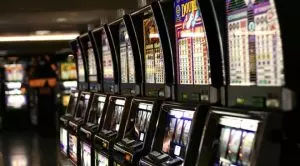 According to media reports, the UK Government crackdown on highly-controversial fixed-odds betting terminals (FOBTs) has been delayed once again.
According to media reports, the UK Government crackdown on highly-controversial fixed-odds betting terminals (FOBTs) has been delayed once again.
The measures that are to be taken in terms of reducing the machines’ harmful effect and lowering their maximum stake were expected to be announced by the end of April. However, the decision has reportedly been delayed once again until the local elections are held at the beginning of May due to misunderstandings among some members of the Government. According to some sources, the member of the British Conservative Party and Chancellor Philip Hammond was responsible for the delay.
Rumours has it that Chancellor Hammond is refusing to agree with the FOBTs maximum stake reduction to £2 due to some fears that the UK gambling sector could lose hundreds of millions in gambling tax revenues. Currently, players can bet up to £100 every 20 seconds, which could theoretically boost their losses to £18,000 in an hour.
The media reports according to which the delay of the FOBTs crackdown is caused by Chancellor Hammond come unexpectedly, especially considering the fact that a few months ago, in September 2017, he hinted that the UK Government could finally impose some restrictions on the controversial machines. Still, as Casino Guardian reported earlier in 2017, Mr. Hammond had warned that slashing the maximum FOBTs stake to £2 could end up leaving a £400-million gap in the country’s tax revenues.
On the other hand, local gambling operators have also protested against such a reduction, saying that such a decision would force them carry out massive lay-offs in the industry, with more than 20,000 jobs being eliminated and thousands of betting outlets across the UK closed.
FOBTs Bring Massive Revenue to UK Gambling Industry
 For some time now, anti-FOBTs campaigners have been trying to persuade the Government that the lowest possible stake should be imposed. Opponents of fixed-odds betting machines have been claiming that the terminals are highly-addictive and pointed the FOBTs as one of the main reasons for increasing number of problem gamblers across the country. The maximum stake of £2 has been backed by various organisations, church groups, anti-gambling campaigners and Members of Parliament.
For some time now, anti-FOBTs campaigners have been trying to persuade the Government that the lowest possible stake should be imposed. Opponents of fixed-odds betting machines have been claiming that the terminals are highly-addictive and pointed the FOBTs as one of the main reasons for increasing number of problem gamblers across the country. The maximum stake of £2 has been backed by various organisations, church groups, anti-gambling campaigners and Members of Parliament.
As reported by The Daily Mail, last week some members of the Conservative Party said they were to vote against a maximum stake higher than £5.
For the time being, fixed-odds betting machines are considered one of the major drivers of the UK gambling industry revenue, with approximately £500 million brought to the Treasury by the machines in 2017. The combined losses of British players, on the other hand, amounted to £1.7 billion.
The beginning of 2018 saw HM Treasury share concerns that the expected reduction of FOBTs maximum stake could hurt public finances. The Treasury projected that the upcoming crackdown would lead to a sharp decline in the funds or financial reserves of public organisations that are focused on helping local problem gamblers. On the other hand, the British Horseracing Authority (BHA) and the Association of British Bookmakers (ABB) have also warned that the reduction of the FOBTs maximum stake could have a massive impact on the UK racing industry and gambling sector as a whole.
- Author


